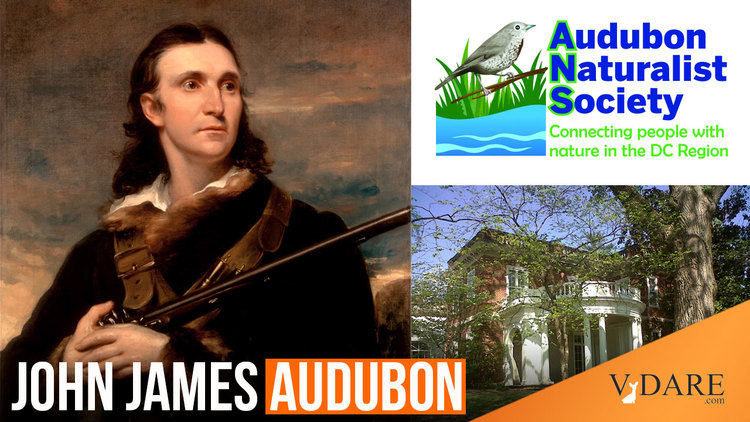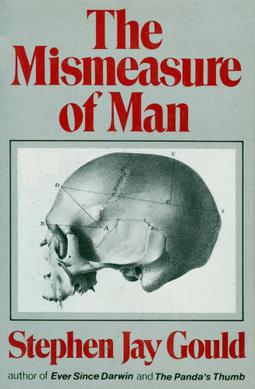


10/25/2021
The tweeter below is incorrect. The Audubon Naturalist Society mentioned in this Guardian story is a local DC organization, with a budget under 10 million. The National Audubon Society is much bigger, and — so far — has better sense:
So soon @audubonsociety will be known by a new name? Interesting story here#birds https://t.co/N2T7uI9ee0
— Ed Killer (@FS_EKiller) October 25, 2021
Oliver Milman [Tweet him] writes in the Guardian today:
A leading US conservation group, the Audubon Naturalist Society (ANS), has announced it will change its name, due to the “pain” caused by the 19th-century ornithologist and slaveholder John James Audubon.
The group, which holds wildlife sanctuaries across Washington DC, Virginia and Maryland, said that it had become clear its name did not connect to its diverse set of programmes and that some members and volunteers had objected.
“The mission and vision of the organisation have not changed,” said Lisa Alexander, executive director of ANS.
“The deliberate and thoughtful decision to change our name is part of our ongoing commitment to creating a larger and more diverse community of people who treasure the natural world and work to preserve it. It has become clear that this will never be fully possible with the current name.”
Originally called the Audubon Society of the District of Columbia, ANS was set up in 1897 as part of a wave of such groups seeking to protect bird species then under threat from hunters.
Audubon achieved lasting fame for his detailed studies and illustrations of American birds, made in the early 19th century.
More recently, he has come under scrutiny for his buying and selling of enslaved people in the 1820s; for his objections to the abolitionist movement; and for writings that portrayed black and indigenous people as inferior to whites.
Audubon, who was born in modern-day Haiti but moved to the US before dying in New York in 1851, took five human skulls from a battlefield in Texas and sent them to Samuel Morton, a doctor who attempted to determine differences that he claimed showed varying intelligence levels between races.
US conservation group to drop Audubon name over ‘pain’ caused by slaveholder
The Audubon Naturalist Society, based in the Washington DC area, seeks to distance itself from controversial 19-century ornithologist, October 25, 2021
Audubon was a Frenchman, born in Haiti, who became an American citizen in 1812. Considering events in Haiti, you can’t expect him to be enthusiastic about Abolition. This was a pretty mainstream position during his lifetime, as were opinions that blacks and Indians were inferior to whites.
While collecting skulls from a battlefield sounds distasteful, it’s not that unusual for a 19th century naturalist.
Samuel Morton, the 19th century American physician and natural scientist, is hated by modern anti-science types, because he was a pioneer of craniometry, measuring the skulls of different races.

He was largely forgotten (he died in 1851) before Stephen Jay Gould attacked him in 1978 in his anti-science book The Mismeasure Of Man, where Gould claimed that all of Morton’s data were wrong as a result of prejudice.
Steve Sailer wrote here that
It’s important to keep in mind this in mind about Gould’s jihad against Morton: it’s not as if Gould was courageously attacking some giant figure in the history of science with numerous still active defenders. Barely anybody outside of physical anthropologists had heard of Morton when Gould started his crusade against him. The only reason Morton was famous in the 1970s was because Gould was so angry about him. Gould wasn’t picking a fight with the current state of the art skull expert, he was picking a fight with a guy who had been dead for 127 years, who had been dead for 8 years when The Origin of Species was published. It was absurd, but it made Gould a lot of money.
In 2011, after Gould himself had been dead for 9 years, some modern scientists analyzed Gould’s reanalysis of Morton’s results, and wrote that Morton was right, and Gould was wrong: " … Our analysis of Gould’s claims reveals that most of Gould’s criticisms are poorly supported or falsified."
So Audubon wasn’t slightly unusual for an American white man of the 19th century, owned almost no slaves, and didn’t even have slightly unusual (or unscientific) ideas. But because he was white, he has to go, like all the others.